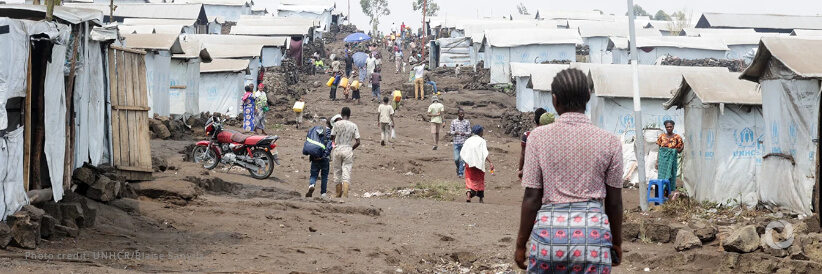The voluntary return of nearly 20,000 Central African refugees marks a key step toward sustainable peace and development in the region, UNHCR, the UN Refugee Agency, announced.
In 2024, 19,751 Central Africans voluntarily returned to the Central African Republic (CAR), with the support of UNHCR and refugee-hosting governments including Cameroon and the Democratic Republic of the Congo, which facilitated 16,265 of these returns. This represents the highest annual return since the voluntary repatriation programme started in 2017. Between 2017 and 2024, a total of 52,937 Central Africans returned to their homeland.
Across Western and Central Africa, the number of voluntary returns of refugees has been increasing over the past few years. Since 2017, more than 400,000 refugees have returned to their countries of origin in the region, including significant numbers to Côte d’Ivoire (317,824), Cameroon (30,581), and Nigeria (5,571). This underscores the growing need for robust action to enable returnees to reintegrate successfully into their home communities.
During his recent visit to CAR, UNHCR’s Assistant High Commissioner for Operations, Raouf Mazou, engaged with returnees and local communities to assess ongoing reintegration efforts. He welcomed the return of some 151,000 internally displaced people (IDPs) and 20,000 refugees in 2024 and emphasized the critical importance of supporting these voluntary returns as a cornerstone of lasting solutions to displacement in CAR and the region. With forced displacement on the rise globally, uncertainty surrounding funding, and solutions at a premium, this is a positive example for the region and beyond.
“Refugees returning home is more than a journey – it is the start of rebuilding lives and communities,” said Mazou. “Their resilience and determination inspire us, but their return and successful reintegration depends on security and our collective commitment. We must ensure that returnees, both refugees and IDPs, and their receiving communities have the support they need to rebuild their futures in safety and dignity, laying the foundation for lasting peace and stability in the Central African Republic and across the region.”
Despite these encouraging trends, the regional displacement situation remains critical. Some 679,000 Central Africans, equivalent to 10 per cent of the country’s population, remain in exile including in Cameroon (238,000), the DRC (207,000), Chad (140,000), and the Republic of Congo (35,000). Additionally, due to persistent insecurity and limited access to basic services, there are still over 476,000 internally displaced people in CAR. Addressing the needs of both returnees and those still displaced is crucial to ensuring stability in the country and in the region.
To address these challenges, the CAR Solutions Support Platform, launched in 2023, aims to mobilize political, technical and financial support at local, regional and global levels. This initiative focuses on voluntary repatriation, reintegration in CAR, socioeconomic integration and inclusion for those opting to stay in host countries. With the support of the European Union and other donors, including in the private sector, UNHCR is working closely with governments and humanitarian partners to strengthen return assistance, improve infrastructure, and expand access to education, health care and livelihoods.
Durable solutions are essential in ensuring long-term stability across Western and Central Africa. Returnees require comprehensive support, including access to housing, employment and essential services, to rebuild their lives and contribute to their communities. UNHCR urges greater international collaboration to sustain and expand reintegration programmes that promote peace and development in the region.

